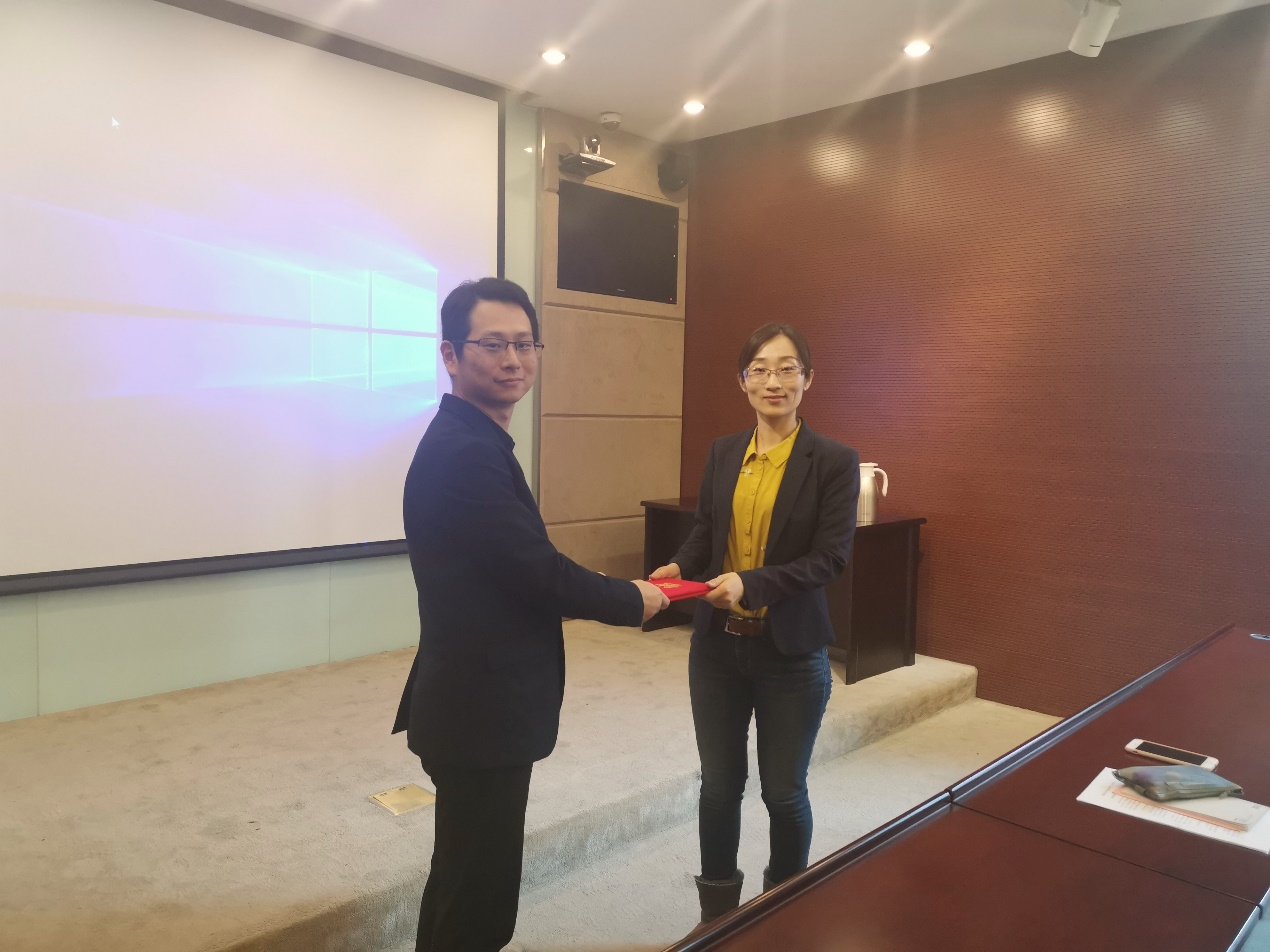On the Cultivation of LSCIO (Taking the UN as an Example)

At 3:00 p.m. on December 6, Wen Yi, Secretary and Deputy President of Grouphorse Translations (Group), was invited to the School of Foreign Studies (the SFS) of University of Science and Technology Beijing (USTB) to give a lecture on “the cultivation of language serDeputy talents in international organizations (taking the United Nations as an example)”. Mr. Wen Yi got his bachelor’s degree in USTB. After that, he studied for the master of law in Renmin University of China. The host of lecture was Associate Professor Fan Yiting. Associate professor Man Haixia, director of MTI program and some English major undergraduates attended the lecture. Before the lecture, Ms. Man presented an appointment letter to Mr. Wen Yi, who was employed as an off-campus supervisor for MTI program of the SFS.

In the lecture, Mr. Wen Yi first introduced the differences among the three types of civil servants in the United Nations and their barriers to entry. After that, he introduced in detail the contents to be covered by the examination, registration qualification and the examination of Language Competitive Examination (LCE) and Young Professional Program (YPP).
Then, Mr. Wen Yi explained three features of translation of UN documents: preciseness, unity of inheritance and criticism, and a wide range of content and high degree of professionalism. In addition, he expounded the evaluation criteria of UN document translation from five aspects of “accuracy”, “grammar”, “terminology”, “style” and “citation”.
In the second half of the lecture, Mr. Wen Yi shared his views on the trend of translation. The accuracy of machine translation has been improved, but the machine translation research based on neural network and deep learning has hit a bottleneck. The accumulated problems on corpus in the industry also affect the production of machine translation. Therefore, the outlook of manual translation is very positive and it will not be replaced by machine translation.
Mr. Wen Yi also explained the differences between professional translation (Enterprise Service) and consumer-level translation. He mentioned that the former one hasstrict requirements in accuracy, authenticity, style and consistency which brings more salaries. It is more in line with the national strategic trend. Mr. Wen Yi encourages students to work as a professional translator.
At the end of the lecture, Mr. Wen Yi stressed that people working in international organizations need to maintain a strong national cultural identity to communicate and cooperate with others in a confident and positive attitude. Also, it is necessary to constantly improve language abilities. In addition to the “four skills” of listening, speaking, reading and writing, those who work in international organizations are much expected to communicate with different people with multiple languages, so as to be effective in work, clear in logic, concise in eloquence, accurate in translation, and credible in life. Thus the complex problems are smoothly solved. At the same time, it is also necessary to cultivate the ability of organizing, planning, management and leadership, as well as the personality of being active, open, conscientious, resourceful and resilient. Strong willingness to learn could nurture professional qualities and enrich professional knowledge.
